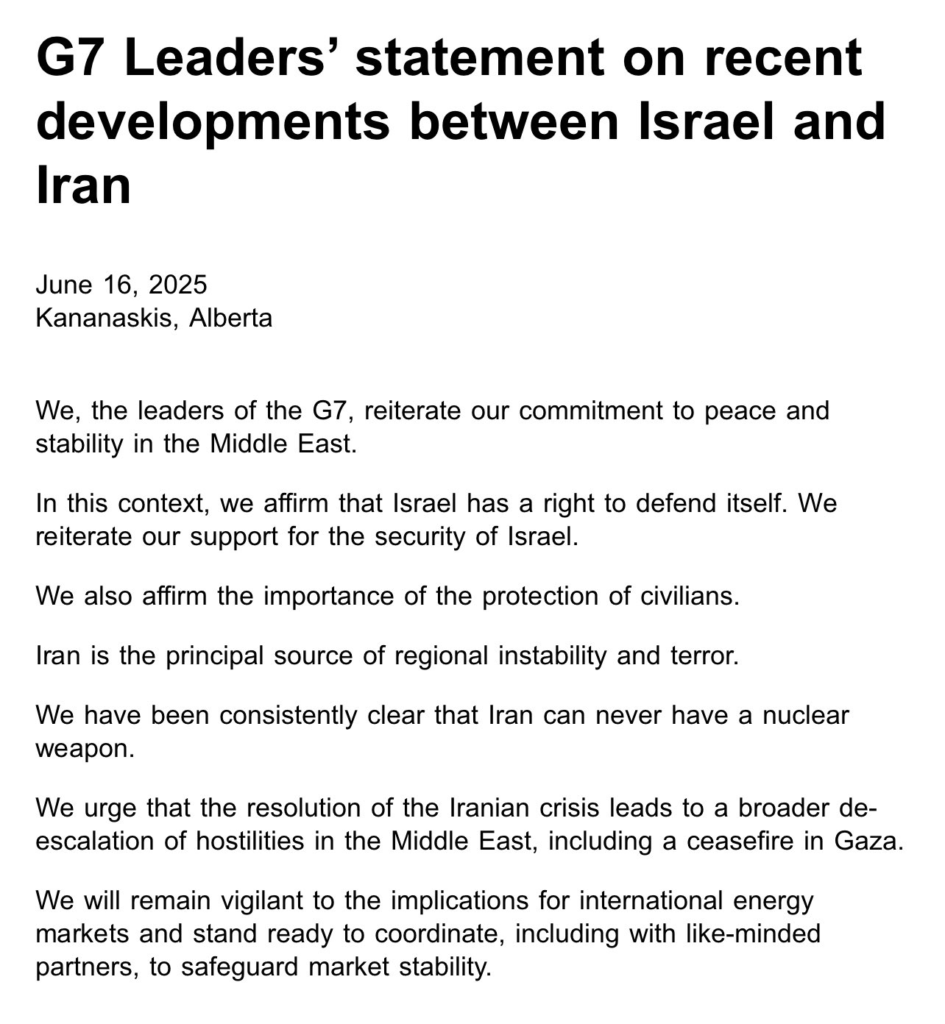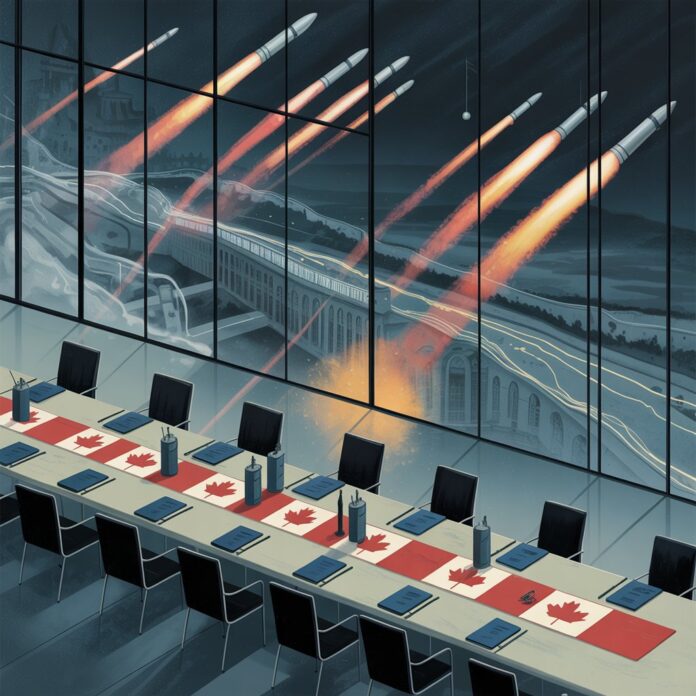The annual G7 summit commenced on Monday (June 16) in the picturesque mountain town of Kananaskis, Canada, amid a turbulent global atmosphere. Two escalating crises are shaping this unease: the war in Ukraine and the spiralling conflict between Israel and Iran. Leaders from the United States, the United Kingdom, Canada, France, Germany, Italy, Japan, and the European Union convened to address pressing global issues. But divisions surfaced even before discussions officially began.
One of the summit’s most contentious issues is the deepening Israel-Iran conflict. The escalating violence has raised fears of a broader regional war in the Middle East. Recent weeks have seen a sharp uptick in hostilities. Israel conducted targeted strikes against Iranian-linked military infrastructure in Syria and Lebanon. On the other hand, Tehran-backed groups have retaliated with missile and drone attacks. The growing involvement of proxy militias across the region has further destabilised the situation, drawing international concern.
In the official G7 leaders’ statement issued during the ongoing summit in Canada, the Group adopted a clear pro-Israel position. Expressing firm support for Israel’s security, the statement identified Iran as the “principal source of regional instability and terror.”

Tensions were exacerbated when a senior U.S. official confirmed that President Donald Trump would not support a joint G7 communiqué calling for de-escalation in the Middle East. G7 expected the draft statement to demonstrate a unified stance against the conflict in the Middle East. It reportedly urged all parties (Iran, Israel, and other stakeholders) to exercise restraint and avoid actions that could ignite a regional war. However, Trump’s refusal to back the language on Israel and Iran signals a significant rift within the group. This is especially as European powers seek diplomatic channels to prevent further escalation.
Trump’s position frustrates allies such as France and Germany, advocating for mediation and caution in the Middle East. His stance also follows his controversial remarks calling Russia’s removal from the former G8 a “big mistake.” This also added to the unease among G7 partners already grappling with divergent strategic priorities. The summit, meant to project unity, now risks highlighting growing fractures among Western allies.



